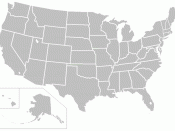The National Pan-Hellenic Council, Inc. (NPHC) is a combination of the nine largest historically African American Greek fraternities and sororities. They are currently representing over a million members internationally. Their mission is to overlook the actions and conduct of the fraternities and sororities. They also acted as a mediator for problems concerning the interest of the organizations." The NPHC is proud of its diverse membership of students, celebrities, corporate, political and community leaders. Its affiliate membership includes Alpha Kappa Alpha Sorority, Alpha Phi Alpha Fraternity, Delta Sigma Theta Sorority, Zeta Phi Beta Sorority, Iota Phi Theta Fraternity, Kappa Alpha Psi Fraternity, Sigma Gamma Rho Sorority, Phi Beta Sigma Fraternity, and Omega Phi Psi Fraternity. They are commonly known as the Divine 9. The NPHC have convened to discuss and address issues of mutual concern. They promote interaction through forums, meetings and other ways to receive and give information. Members of the NPHC engage in cooperative programming and initiatives through various activities and functions.
The social and economic power of the NPHC has been a major source of change for the African American community in America since the beginning.
Founded during a time when the Supreme Court felt that separating facilities for blacks and whites was constitutional, Alpha Phi Alpha emerged with the principles of manly deeds, scholarship, and love for all mankind. Around the late 1800's African American students at Cornell University (an Ivy League university in upstate New York) were indicative of the problems affecting African Americans as a whole. They were disjoined from each other and the student body as a whole. This lack of connection resulted in horrible retention rates. In fact, the entire African American population (six students) of the 1904-1905 class did not return for the 1905-1906 school year. In response to this, a...


